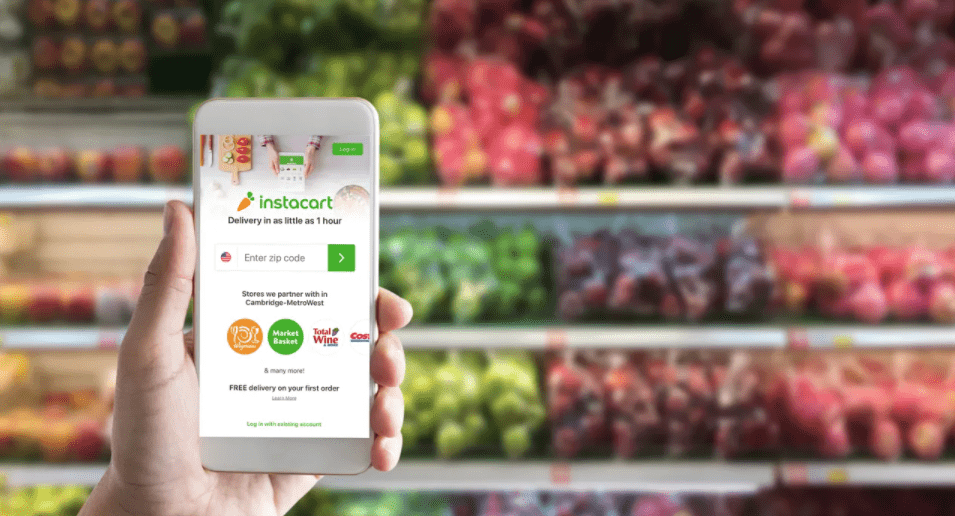Although Amazon purchased Whole Foods in 2017, which was expected to be the deathblow to delivery service Instacart, the delivery company is thriving and continues to be Amazon’s largest competitor in grocery delivery.
Instacart’s strength, in part, comes from the retailers that rely on the service to offer delivery to their customers. Following Amazon’s purchase of Whole Foods in 2017, grocery stores and chain retailers alike sought partnerships with Instacart to prevent Amazon from establishing too large a hold in the grocery industry. The partnerships are beneficial to Instacart and the companies that use their delivery services — they especially helped retailers overcome the financial challenges brought about by the Covid-19 Pandemic.
Now, looking forward, Instacart is planning to bring the competition to Amazon with new warehouses and deliveries outside of the grocery industry. Instacart president Nilam Ganenthiran believes that the company’s strength against Amazon lies in the belief that “brick and mortar retailers are critical to the future of grocery.”
Instacart is also competing with Amazon by expanding its delivery offerings. In addition to groceries, Instacart has partnerships with retailers like CVS, Walmart, and Petco that allow it to deliver a wide range of household products to customers. The range of products that Instacart can deliver helped make it one of the biggest success stories to come out of the Covid-19 Pandemic — the company’s value quadrupled to $39 billion after receiving $890 million in financing.
The staff at Instacart are also contributing to the company’s massive success as a competitor to Amazon. Several high-ranking staff at Instacart, including engineers, ad sales, and operations management workers, have previous experience working for Amazon or other tech companies — including Instacart CEO Apoorva Mehta, who worked at Amazon and cited Jeff Bezos as one of his largest influences.
A particularly impactful hire is Ryan Mayward, former Amazon employee for ten years, as VP of ad sales. Hiring Mayward indicates that Instacart is ready to compete with Amazon head-on, using their own strategies against them. Instacart understands that the only way it will continue to see success is if they promote and advertise the retailers they partner with — the same way Amazon promotes the thousands of different products they carry from just as many retailers.
In addition to Instacart’s new hires, their upcoming automated warehouses will help them compete even more with Amazon. The high-tech warehouses will make grocery delivery seamless, efficient, and fast and also present Instacart with a unique opportunity to make their own gains in the grocery industry. As Instacart establishes a brick-and-mortar presence around the country to help ease the process of grocery delivery, they will simultaneously prepare themselves to open their doors to the public and begin competing with grocery retailers.
In opposition to Instacart’s rapid growth is the company’s poor track record with worker’s rights. With a workforce comprised mainly of independent contractors, many of their employees are unable to unionize and work for better pay, benefits, and safety measures. Like Amazon, INstacart must overcome the opposition by improving its reputation and work conditions for all employees.
